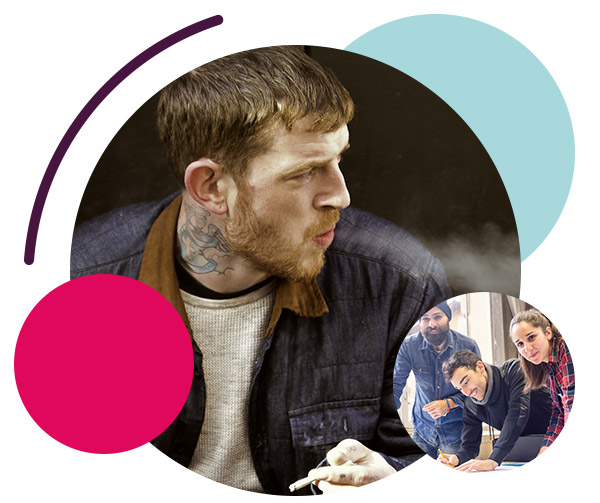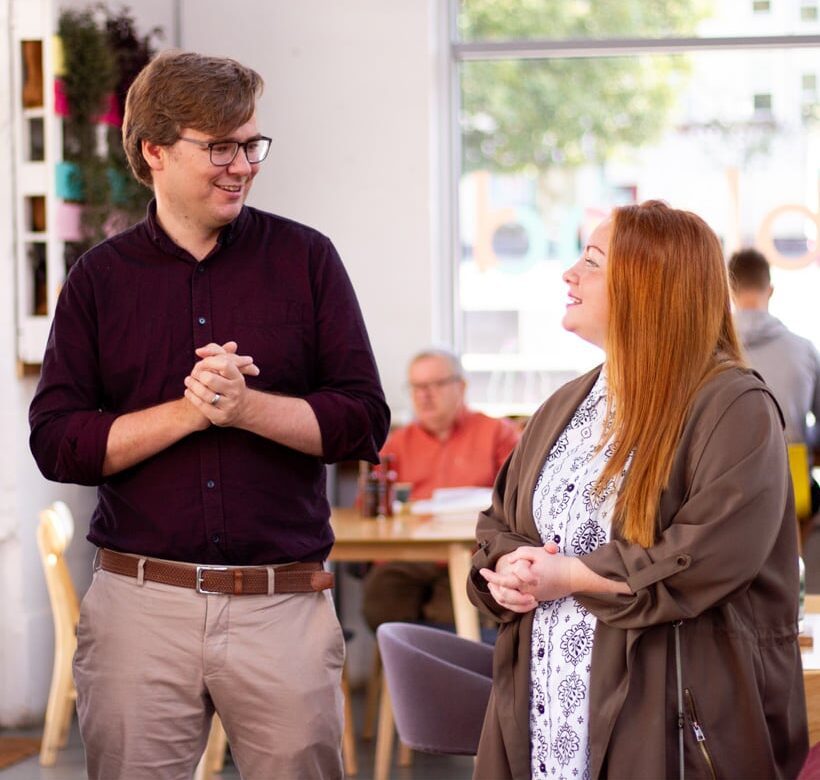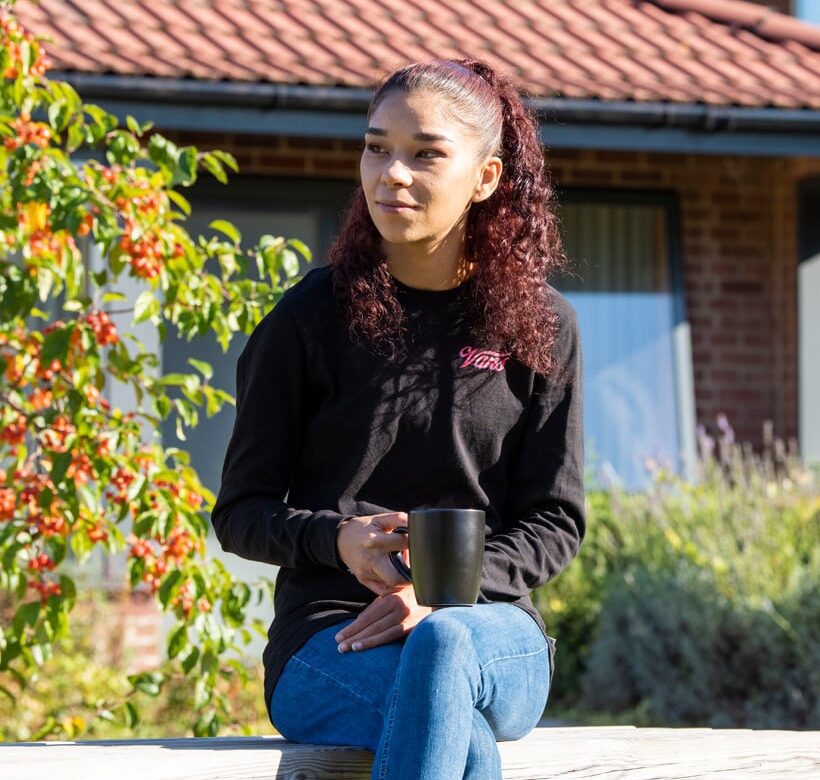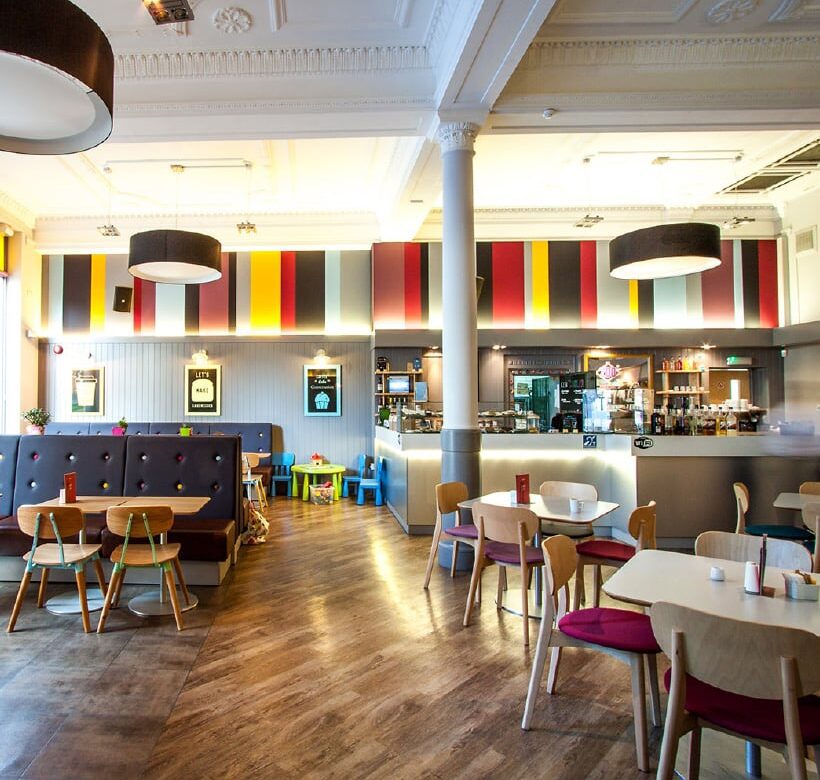Structured Day Programme Morning Meeting
Wellbeing Hub 73 Hounds Gate, NottinghamChance to start the week in a positive way alongside your peers.

Further details on the groups and support we offer can be found below the calendar (just scroll down the page). You need to be a client at Nottingham Recovery Network to attend any of our groups. You can book a place via your Key Worker.
Chance to start the week in a positive way alongside your peers.
An online peer support group which introduces a variety of recovery tools.
This programme runs for 6 weeks, with attendance expected each week, and it provides service users with relapse prevention tools including managing cravings and identifying triggers/high risk situations.
A peer support group for people who have achieved abstinence. A space to connect and relate with peers.
This six session group will explore what anxiety is, how it can affect us and ways of managing this including CBT approaches and mindfulness.
A space to get support and guidance with these essential skills and an opportunity to practice and develop these skills to support your progression to further study, volunteering or employment.
This eight week course will look at the strengths we have as a person. We will also look at the profit and loss of addiction, and how we can make
This six session group will explore the different types of substances, what drugs actually are and how they work in the brain, exploring the effects and risks associated with each
Skills Plus is a learning and skills curriculum with a focus on developing and enhancing key life-skills. The service is designed to give you access to a range of fun
A facilitator supported safe space to complete ACT based reflective journalling with or without the use of the provided prompt sheets or other appropriate mediums (eg Apps).
A chance to catch up with your peers at the end of the day.
We have Peer Mentors, Recovery Support Volunteers and Recovery Connectors who can provide one-to-one mentoring support to clients to help them navigate their own recovery pathway.
They can help:
Nottingham Recovery Network clients can speak to their Key Worker for more information.

We offer safe spaces where our clients can relax and have a cuppa and natter with other clients in a place they know and feel safe in.
Our ‘Open Access’ community space at the Nottingham Wellbeing Hub has its own entrance, sofas, kitchen facilities, and a relaxed and vibrant courtyard space, with jigsaws, games and books to read.
It is a space for people to connect with themselves, each other and their local community. Building a positive recovery community is important for an individual’s recovery capital, and can help people to maintain their recovery.
Volunteers and Mentors are visible examples of recovery and are available to provide support and guidance as needed, and promote the fact that recovery is real and is possible.

A city-centre social enterprise for people in recovery, hosting a new recovery centre safe space (access through the café).
Café Sobar facilitates a thriving recovery community including access to mutual aid and visible recovery through staff and volunteers.
Our team use the space behind Sobar to run group and support sessions alongside Café Sobar’s regular evening recovery celebration events.

This is a single workshop that looks at the risks associated with alcohol use, specifically binge drinking. It considers the legal, social and personal harms and implications of binge drinking, and things people should be mindful of when drinking, such as mixing alcohol with both prescribed and illegal drugs.
This six-week workshop looks at how boundaries are formed and why they are important. Each session explores a different type of boundary and provides skills to enforce them in a safe space.
This group runs for five weeks, Sessions consider what drugs actually are and how they work in the brain, different theories of how addiction can develop (such as trauma and learned behaviour), and tips on how to manage triggers and cravings.
This workshop runs for eight weeks. It considers the strengths each person has and also looks at the profit and loss of addiction, and how people can make changes to address their past behaviour. There is also consideration given to making amends and positive future goals and thinking.
This three-session workshop explores different types of substances, and the effects and risks associated with each type of drug. It also looks at harm reduction tips and how to stay safe whilst using. The last session looks at new types of drugs and how people can stay safe whilst using them.
Framework is committed to ensuring all clients are not digitally excluded, and can access the internet to help them build a rewarding and independent future.
Digital Skills sessions are aimed at all levels of learners and focus on practical uses of digital resources (computers, tablets, Smartphones and the internet) in every day life. This could include:
Digital Drop-In sessions are also available for help with any IT problems.
For more information visit the digital inclusion website.
This group offers an introduction to the ACT Principles. It lasts for six-weeks, and is for clients who are ready to focus on identifying clear goals and making actual changes to their behaviour patterns.
With attendance expected once a week over a six week timeframe – this group provides clients with relapse prevention tools including managing cravings and identifying triggers/high risk situations.
With attendance expected once a week over a six-week timeframe – this group supports clients to identify treatment goals and develop tools and strategies to make and sustain changes.
With attendance expected once a week over a six-week timeframe – this group utilises a range of methods and models for people seeking to develop tools and techniques for managing emotions.
With attendance expected once a week over a six-week timeframe – this group utilises CBT techniques combined with the Alcoholics Anonymous/Narcotics Anonymous 12-step approach. It is a group specifically for abstinent clients.
Attendance at an information session is compulsory for this group. A screening assessment must be completed, followed by up to eight-weeks of DBT based interventions including: Living Mindfully, Interpersonal Effectiveness, Emotion Regulation and Distress Tolerance.
This rolling weekly writing workshop is for clients who are looking to explore their creativity through the use of the written and spoken word.
This group offers a peer support space for people of a black and minority ethnic or refugee background.
This rolling weekly group offers a peer-based, female-only safe space for clients to connect, support, and explore relevant subjects and topics with group peers and facilitators.
This rolling weekly peer-based group helps clients to connect, discuss issues relating to recovery and support each other in a staff-facilitated space.
This regular group is for clients who would like to use arts and crafts as a means of expression.
SMART is an external mutual aid organisation. They offer rolling weekly meetings using a science-based therapeutic programme to support people in their recovery goals.
Auricular acupuncture refers to the stimulation of nerves in the outer ear using sterile needles . Forty-minute sessions are available.
Benefits include:
This group offers a programme of support designed to assist people through the difficult process of reducing substitute prescriptions such as methadone or buprenorphine.
These sessions include Indian head massage, reflexology, breathwork, mindfulness and stretch and flexibility.
These workshops connect people with themselves, each other and their local communities. They raise aspirations and ambitions, and generate a peer support network to promote recovery. Attendees are offered strategies and techniques to stay safe and reach their recovery goals.
These practical peer support groups focus on the here and now in an informal and safe environment where people can share their experiences and connect with peers. They aim to build on and help develop self-awareness and resilience.
This group is a peer support group where men can share their experiences as a way to help each other. Each session offers an inclusive and positive space where men can discuss topics relating to recovery and living sober one day at a time.
This group isn’t about just growing tomatoes. There is so much more to the group than gardening, think five ways to wellbeing meets project management, garden design, conversation, healthy debates and fun!
This group offers a facilitator-supported safe space for clients to complete their ACT based reflective journalling (with or without the use of the provided prompt sheets or other appropriate resources such as apps).
Skills Plus is a learning and skills curriculum with a focus on developing and enhancing key life-skills. The service is designed to offer access to a range of fun and interactive workshops within the local community, building skills in a range of topics including:
Each session runs for approximately two hours and is designed to help attendees achieve their goals.
It is not a typical learning environment! A session could consist of a mixture of group discussions, picture-based activities, quizzes, and media clips followed by a question and answer session.
No two sessions are the same and support and follow on activities are provided to help attendees put their learning into practice.
To access support from Skills Pus, clients should speak to their Key Worker.